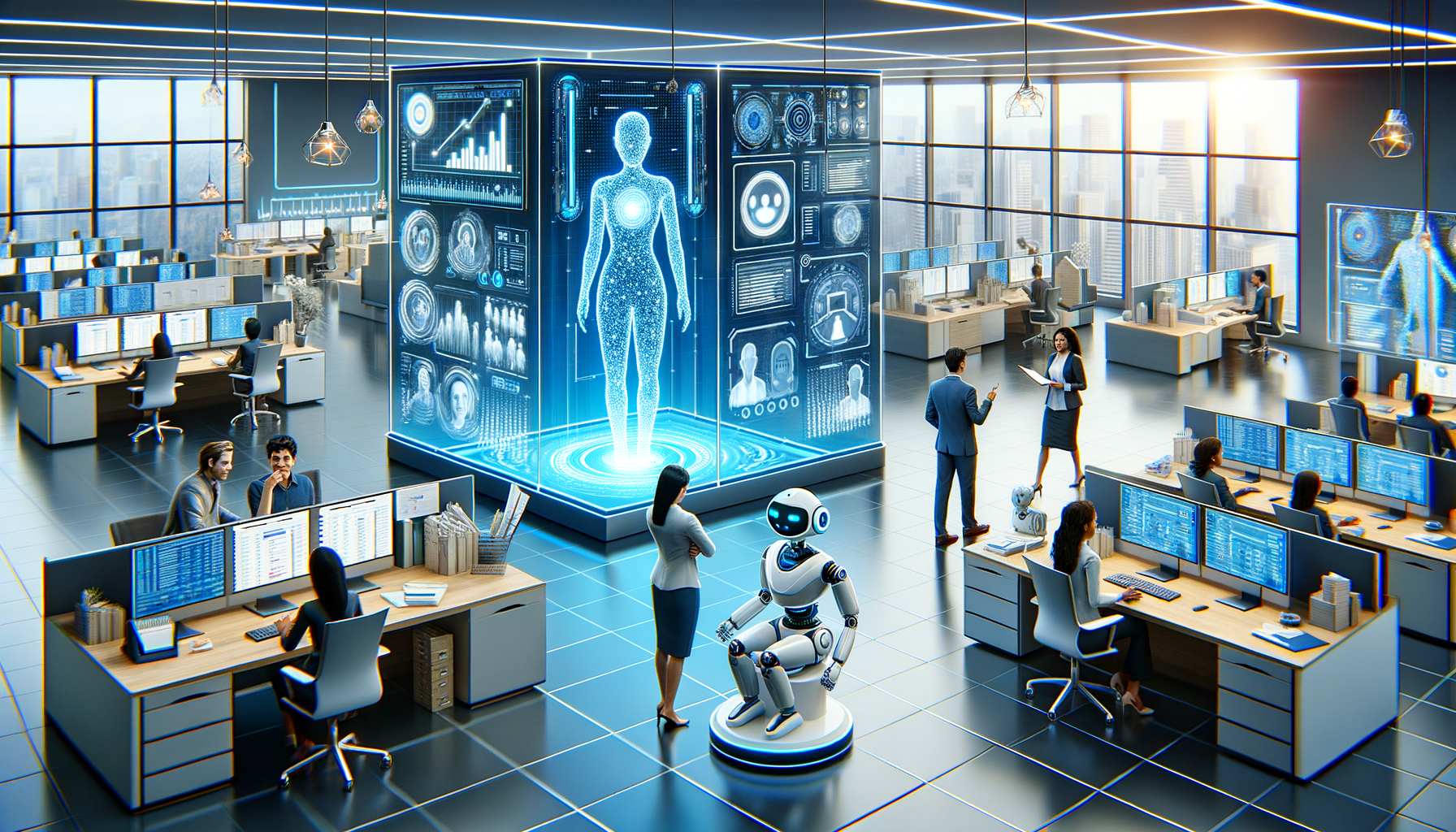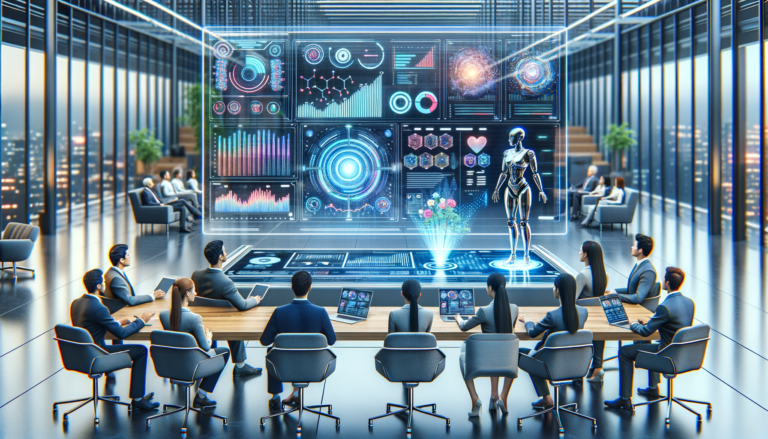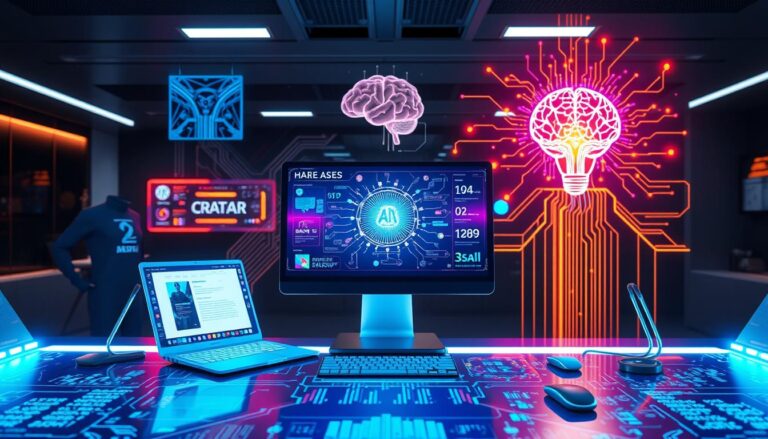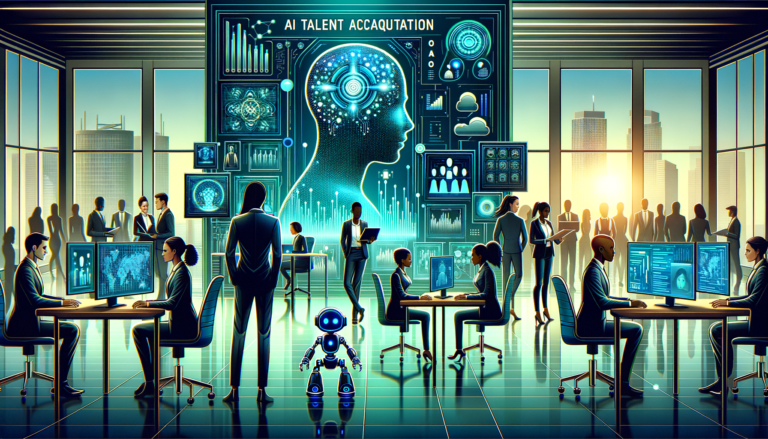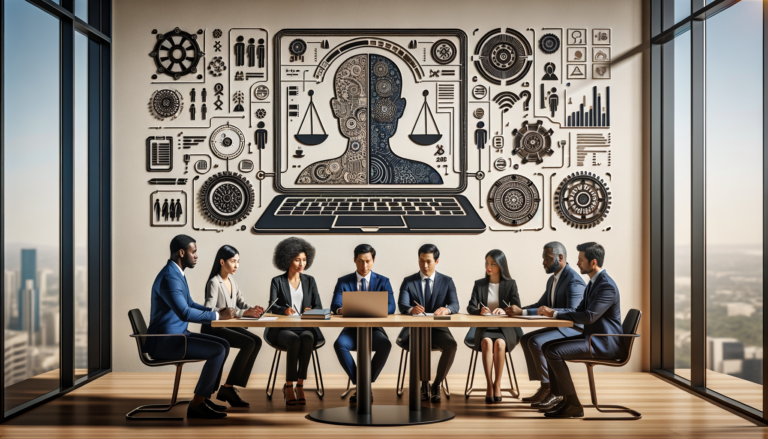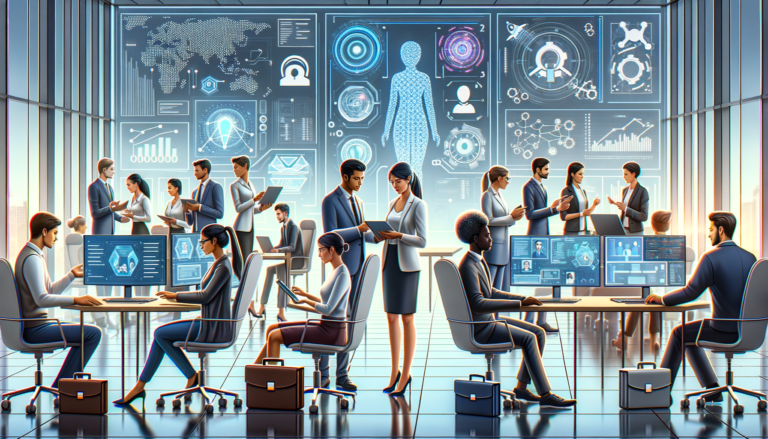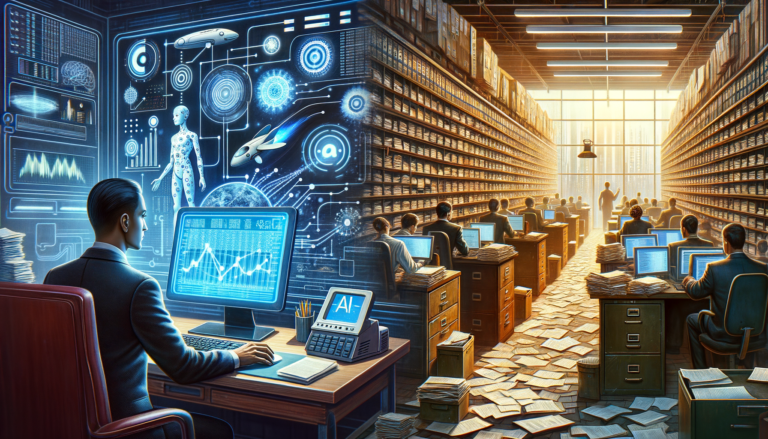Wow! The world of Human Resources is on the cusp of a major revolution, and it’s all thanks to Artificial Intelligence. Did you know that by 2025, 75% of HR departments are expected to be using AI technology in some capacity? That’s right, the future of AI in HR is not just a distant possibility – it’s rapidly becoming our reality. In this article, we’ll dive into the exciting ways AI and machine learning are set to transform HR practices, making them more efficient, data-driven, and employee-centric than ever before. Buckle up, because the future is here, and it’s absolutely fascinating!
The Current State of AI in HR
Let’s dive into the exciting world of AI in HR! It’s amazing to see how far we’ve come in recent years. AI is revolutionizing the way HR departments operate, making processes more efficient and data-driven than ever before.
Many companies are already using AI-powered tools for various HR functions. For instance, chatbots are becoming increasingly common for handling employee queries, while machine learning algorithms are being used to analyze vast amounts of HR data for insights.
Speaking of innovators, companies like IBM, Oracle, and SAP are leading the charge in HR tech. They’re constantly pushing the boundaries of what’s possible with AI in human resources.
And the advancements just keep coming! Recently, we’ve seen breakthroughs in natural language processing that are making AI-powered recruitment tools more accurate and efficient. It’s an exciting time to be in HR tech!
Revolutionizing Recruitment and Talent Acquisition
Now, let’s talk about how AI is shaking up recruitment and talent acquisition. It’s truly game-changing!
AI-powered candidate screening and matching tools are making recruiters’ lives so much easier. These tools can sift through thousands of resumes in seconds, identifying the best candidates for a role based on skills, experience, and even cultural fit.
But it doesn’t stop there. Predictive analytics are now being used to identify top talent before they even apply. By analyzing patterns in successful hires, these tools can predict which candidates are likely to be high performers.
One of the most exciting developments is the use of AI to eliminate bias in hiring. By focusing on objective criteria and ignoring factors like age, gender, or ethnicity, AI can help create a more diverse and inclusive workforce.
And let’s not forget about candidate engagement. Virtual assistants and chatbots are now handling initial interactions with candidates, answering their questions and guiding them through the application process. It’s like having a 24/7 recruitment team!
Enhancing Employee Experience and Engagement
AI isn’t just transforming recruitment; it’s also revolutionizing the employee experience. Let’s explore how.
Personalized learning and development programs are becoming a reality thanks to AI. These systems can analyze an employee’s skills, performance, and career goals to recommend tailored learning paths. It’s like having a personal career coach for every employee!
Performance management is getting a makeover too. AI-driven systems can provide continuous feedback and identify areas for improvement in real-time. No more waiting for annual reviews!
Sentiment analysis is another exciting application. By analyzing employee communications and feedback, AI can gauge overall satisfaction levels and flag potential issues before they become problems.
And have you heard about the use of VR and AR in onboarding and training? It’s pretty cool stuff. New hires can now experience virtual office tours or practice complex tasks in a safe, simulated environment. The future of training is here, and it’s immersive!
Streamlining HR Operations and Analytics
Now, let’s talk about how AI is making HR operations smoother and more data-driven.
Automation is the name of the game here. Routine tasks like payroll processing, leave management, and benefits administration can now be handled by AI, freeing up HR professionals to focus on more strategic work.
When it comes to analytics, AI is a game-changer. Advanced workforce analytics can now predict trends, forecast future talent needs, and even identify flight risks among employees.
Speaking of retention, AI-powered strategies are helping companies keep their best talent. By analyzing factors that contribute to employee satisfaction and turnover, these tools can suggest personalized retention strategies for each employee.
And let’s not forget about HR chatbots. These intelligent assistants are revolutionizing employee self-service, handling everything from answering policy questions to helping employees update their personal information. It’s like having an HR department that never sleeps!
Ethical Considerations and Challenges
Of course, with all this AI comes a host of ethical considerations and challenges. Let’s break them down.
Data privacy and security are big concerns. With AI systems processing vast amounts of sensitive employee data, ensuring this information is protected is crucial.
Transparency is another key issue. How do we ensure that AI-driven decisions are fair and unbiased? It’s a complex problem that the industry is still grappling with.
There’s also the question of balancing automation with the human touch. While AI can handle many tasks, there are still situations where human empathy and judgment are irreplaceable.
Finally, there’s the challenge of upskilling HR professionals. As AI takes over more routine tasks, HR pros need to develop new skills to work alongside these technologies effectively. It’s an exciting opportunity for growth, but it requires a shift in mindset and skillset.
The Future Workplace: AI and Human Collaboration
So, what does the future hold for AI and HR? Let’s peer into our crystal ball.
We’re likely to see a redefinition of job roles and skill requirements. As AI takes over routine tasks, human workers will need to focus more on skills that AI can’t replicate – things like creativity, emotional intelligence, and complex problem-solving.
But don’t worry, AI isn’t here to replace us. Instead, it’s a tool for enhancing human capabilities. Imagine having an AI assistant that can crunch data, spot patterns, and provide insights, allowing you to make better, more informed decisions.
This is why emotional intelligence will become even more important in the AI-driven workplace. As machines handle more analytical tasks, human skills like empathy, communication, and leadership will become even more valuable.
The key to the future workplace will be creating a harmonious human-AI work environment. It’s not about man versus machine, but about how we can work together to create something greater than the sum of its parts.
It’s an exciting time to be in HR, isn’t it? The future is bright, and it’s powered by AI!
Conclusion
As we’ve explored, the future of AI in HR is brimming with possibilities that will transform the way organizations manage their most valuable asset – their people. From revolutionizing recruitment to enhancing employee experiences and streamlining operations, AI and machine learning are set to become indispensable tools in the HR toolkit. However, it’s crucial to remember that the human touch will always remain at the heart of HR. The key to success lies in striking the right balance between leveraging AI’s capabilities and nurturing the irreplaceable human elements of empathy, creativity, and interpersonal skills.
So, what’s your next move? Whether you’re an HR professional, a business leader, or simply curious about the future of work, now is the time to start embracing these technologies and preparing for the AI-driven future of HR. The possibilities are endless, and the future is bright – are you ready to be a part of this exciting transformation?

